Shows
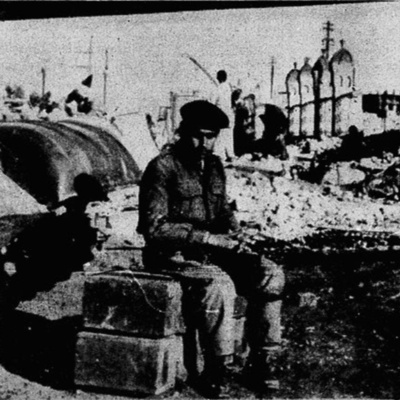
Voicemails from HistoryThe 1963 Iraqi Coup: Exploring tensions in Ba'thismToday's voicemail is taken from page 176 of "Pride and Power: A Modern History of Iraq" by Johan Franzén
In 1963, 'Aref and the Ba'thists instigated the Ramadan Revolution which toppled Karim Qasim from power, a mere 5 years after the first revolution. What followed after was a brief period in which different factions across the Ba'athist and nationalist factions fought for control in Iraq. Eventually, the Ba'this secured their rise to power and would remain as Iraq's single party until Saddam Hussein's downfall in 2003. In this episode, I delve a bit deeper into the end of Qasim's rule by...
2022-10-1630 min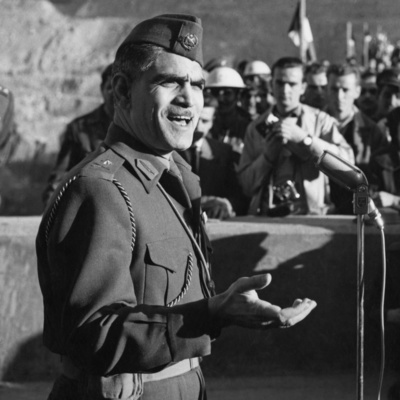
Voicemails from HistoryNavigating the Kurdish-Iraqi Civil War: Barzani, Communists, Aghas & Qasim (1961-63)Today's voicemail is taken from p.225 of Claire Hollingworth's article in 'World Today'.
The Iraqi and Kurdish saga continues! I begin with a quick recap of last episode's story and we get right into Barzani's return to Iraq, how the Kurdish Democratic Party and Iraqi Communist Party continued to affect Kurdish-Arab dynamics, and the different approaches Karim Qasim took to navigate the drama of Iraq's ever changing political scene.
We end by talking about Qasim's depressing downfall, the tentative position the Kurds find themselves in when the 'Arif brothers carry out the Ramadan Revolution in 1963, u...
2022-05-0839 min
Voicemails from HistoryThe making of Iraq and the Kurdish Barzani rebellions: Hope & Discord 1920-1958Today's voicemail is taken from page 1-2 of Quil Lawrence's book, Invisible Nation: How the Kurds' quest for state-hood is shaping Iraq.
In this episode, I turn to look at the Kurdish situation in Iraq, beginning in 1920 with its establishment under a British mandate and the new monarchy. I begin by recounting the Barzani rebellions from 1931-1945, which began primarily due to economic grievances and then evolved to take a more political outlook. There is also discussion on the broader political movements within the Kurds in Iraq as well as among the Arab Iraqis, who are getting...
2022-02-2254 min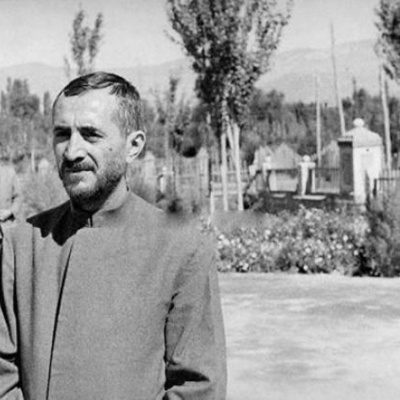
Voicemails from HistoryIran: A splintered revolution, a tragic ending 'The Republic of Mahabad' 1946Today's voicemail is taken from the poem "2+2=1" penned by Qazi Muhammad, 1946.
During the wartime occupation of Iran, the Kurds of Iran led by the revolutionary figure of Qazi Muhammad, set up the Republic of Kurdistan, with its centre as Mahabad. For the Kurds, this was the first implemented Kurdish nationalist aspiration - they set up an autonomous zone with the aim to bring in the Kurds of Iran under a regional Kurdish government.
It is both a remarkable and tragic chapter of 20th century Kurdistan, one that is retold to Kurdish children by their parents...
2022-02-0731 min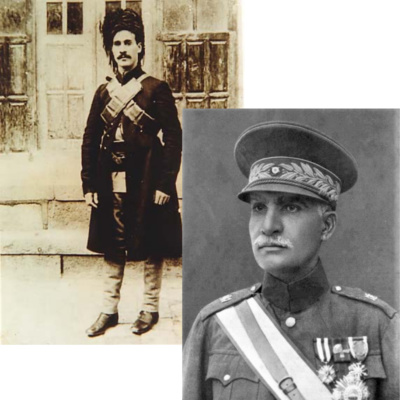
Voicemails from HistoryIran: The Soviets, Reza Shah & Simko Agha (the Kurds)Today's voicemail is taken from the Kurdish epic, Mem û Zîn, written in 1692 by the Kurdish intellectual, author and poet, Ahmed Khani.
Persia was (and is) at the crossroads of Asia. From the 1850s, Persia became everything on the spectrum from a chessboard to a battlefield, fought mainly between the Brits and the Russians, vying for control of its strategic location and its famed oil wells. Caught in the maelstrom of Persian and global politics between 1850-1939, the Kurds instigated one of the 20th century's earliest examples of Kurdish resistance.
What do you think? How much...
2021-12-2636 min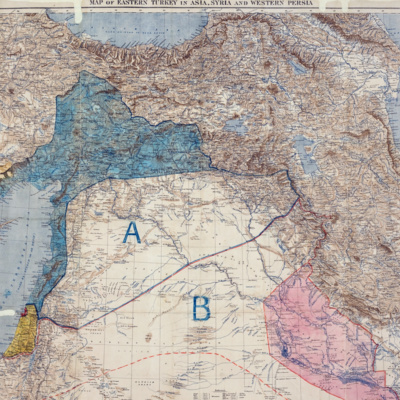
Voicemails from HistoryAn unholy trinity of treaties: Sykes-Picot, Sèvres & LausanneToday's voicemail is taken from James Barr's book, A Line in the Sand, paraphrased from page 11-12.
The consequences of WWI were far-reaching, and the Middle East was no exception. Between 1916 to 1923, three major treaties were signed which carved up this region. These treaties went on to define the new borders, influence policies and as ever, impact the lives of millions.
In this episode I hope to give you a summary of how significant each treaty was, who the winners and losers were. I present the treaties more in the context in which they were p...
2021-12-1135 min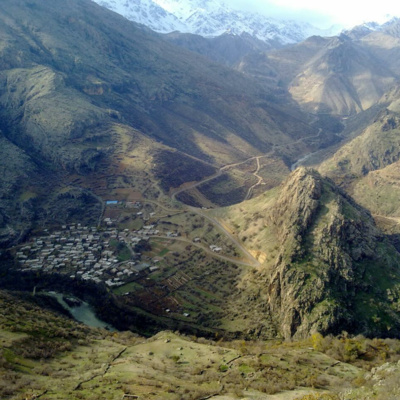
Voicemails from HistoryTracing a Kurdish identity through the yearsToday's voicemail is taken from the following article on the YPJ Zeynab Serekaniye, written by Elizabeth Flock: https://foreignpolicy.com/2021/09/20/turkey-airstrikes-kurds-syria-ypj-ceasefire/
Introducing Season 2! Hello and welcome back to Voicemails from History. In this season, I will be taking you on a tour of modern Kurdish history, each episode highlighting a significant event or moment for them in the 20th century. The Kurds have gained more and more attention in the last decade or so, but there are still gaps in knowledge about who they are and what they want. In this opening episode, I decided to take...
2021-10-2733 min
Voicemails from HistoryBurma 1945-2018: money, legacies & the Rohingya (Part 2), with Thant Myint-UToday's voicemail is taken from page 188, The Hidden History of Burma, A Crisis of Race and Capitalism, by Thant Myint-U.
Timestamps (as I know this episode is longer than usual!)
Intro & background: until 10:30
Burma's economy: 11:00
Aung San Suu Kyi: 23:58
Rohingya and the state of Arakan: 31:25
In part 2 of this episode, I try to understand some of the main political and economic developments of the newly independent country in the 20th and 21st century. There's the military dictatorship and how it tried to rule, the growth of illicit dr...
2021-09-0153 min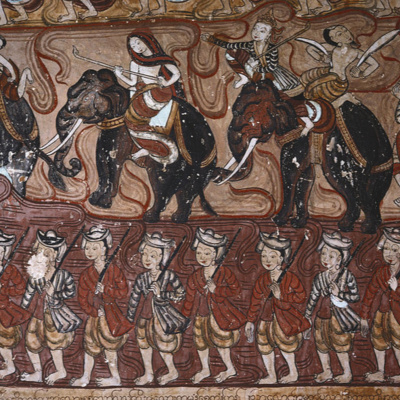
Voicemails from HistoryBurma 849-1945: a crisis of history (Part 1), with Thant Myint-UToday's voicemail is taken from the book, The Hidden History of Burma, A Crisis of Race and Capitalism, by Thant Myint-U.
Burma/Myanmar has experienced a long period of instability, turmoil and civil war. It has cropped up in the news time and time again in relation to 2 main crises - the military junta versus Aung San Suu Kyi and the mistreatment of the Rohingya. In part 1 of this episode, I explore some of the main threads in Burma's medieval and colonial history, as well as the developments during WWII which would later become the new challenges...
2021-08-1847 min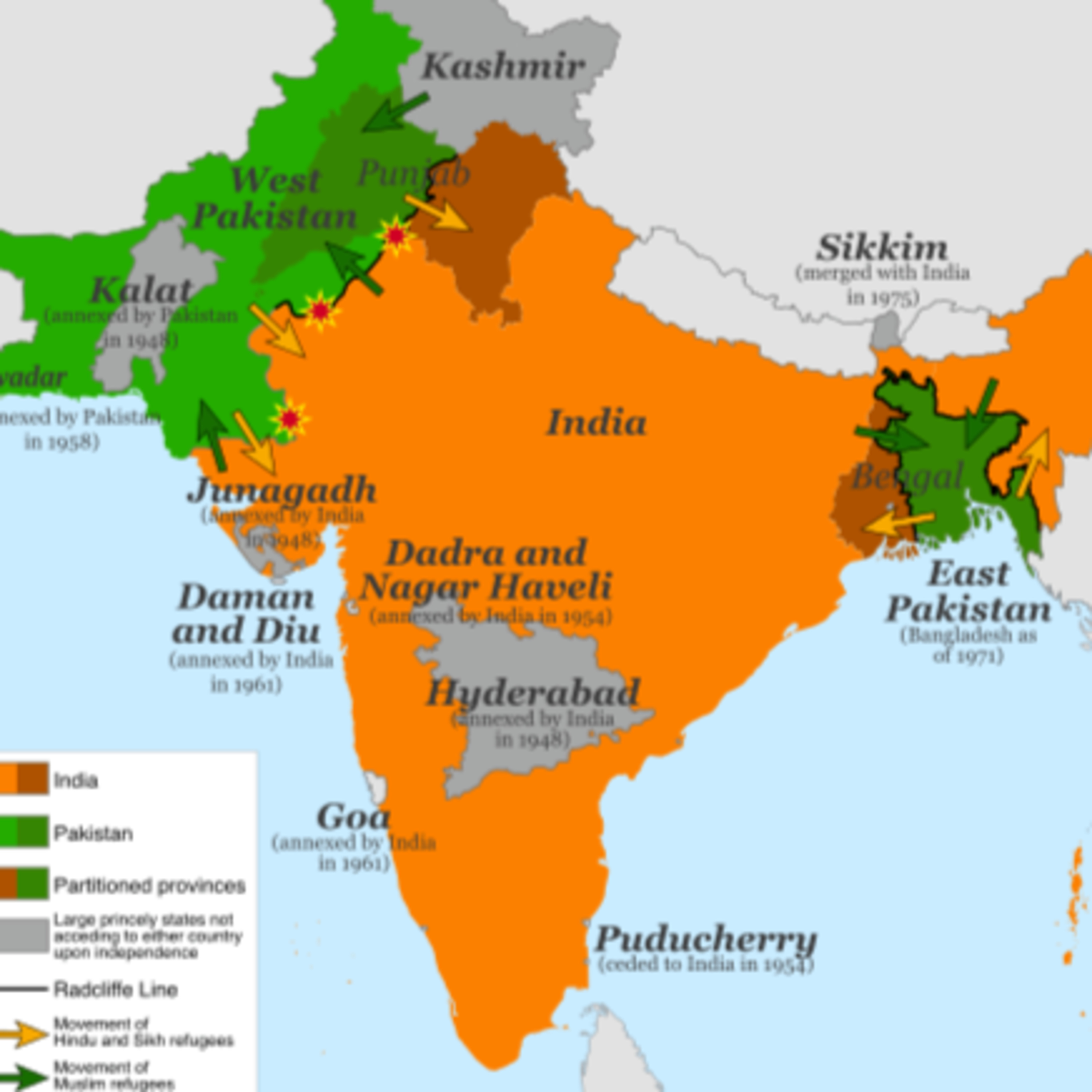
Voicemails from HistoryA botched surgery: 1947 Partition of India, with Joya ChatterjiToday's voicemail is taken a snippet of a poem titled Learning Urdu from Agha Shahid Ali, a Kashmiri-American poet.
The partition of British India in 1947 brought about a scale of violence and bloodshed which followed the pattern of the traumatic years following 1945. In this episode, I break down Chatterji's article, in which she has analysed how the partition came about, specifically looking at the Bengal Boundary Commission.
Contrary to previous episodes where I've looked at the experiences of ordinary people, this one focusses more on the 'higher politics', the competing intentions of political groups, and h...
2021-06-0529 min
Voicemails from HistoryEuropean WWII refugees in Asia and Africa, with Tadeusz PiotrowskiToday's voicemails are taken from the book, the Polish Deportees of WWII, edited by Tadeusz Piotrowski. This book is a collection of diaries and memoirs of Polish deportees from 1939 to 1945.
World War Two witnessed one of the largest population movements in modern history, with approximately 40-60 million Europeans becoming refugees or displaced peoples. Out of this tragedy, 1.7 million Poles were exiled by the Soviet Union until 1941 when they were granted 'amnesty'. This led to a Polish exodus and subsequently thousands of Poles found themselves making new temporary homes in Iran, India, Kenya, Uganda, Egypt, and Palestine.
2021-05-0921 min
Voicemails from HistoryCrimean Tatars in the Soviet Union, with Greta UehlingToday's voicemails are taken from Greta Uehling's book, Beyond Memory: The Crimean Tatars' Deportation and Return.
In this episode, I talk about the history of the Crimean Tatars, a group considered to be Europe's oldest surviving Muslim community. On the 18th of May 1944, Joseph Stalin ordered the en masse deportation of 191,000 Crimean Tatars, signalling an astounding break from previous Soviet policy towards ethnic groups in the late 1920s. I consider how the study of Crimean Tatars challenges the idea that Europe and Asia are 'different' from each other and how the Crimean Tatars have formed a unique s...
2021-04-1722 min
Voicemails from HistoryPutting Lviv into the Nuremberg narrative, with Philippe SandsToday's voicemail is adapted from a debate on page 148 from Philippe Sands's book, East West Street.
This brilliantly written book focuses on the personal narratives responsible for the development of the legal concepts 'genocide' and 'crimes against humanity'. Sands explains how three men moving through this one city in central Europe all affected the Nuremberg Trials of 1946. I discuss how these origins have implications for our understanding of international law and the International Criminal Court in the 21st century.
For further reference on the current definitions of the terms: https://www.icc-cpi.int/resource-library/Documents...
2021-04-0929 min